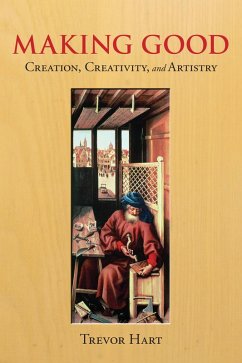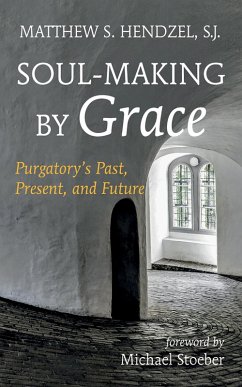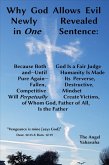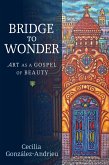God spoke, and all that is and all that ever will be came into existence. God alone can be called uncreated and Creator, and creation can only accomplish that which already exists within God's imagination. In Making Good, Trevor Hart argues that human creativity is always a matter of unfolding the possibilities already latent within the original creative event.
Making Good contends that while humans must acknowledge the unique and incomparable dimensions of God's creative activity, the biblical theology of creation encourages rather than prohibits human creativity within a language of creation. Hart's basic contention is that the God known as the Father of Jesus Christ is no domineering deity who jealously seeks to protect his creative prerogatives, but one whose own creativity calls forth, inspires, and enables creative responses on the part of his human creatures.
Making Good blends biblical, historical, and systematic theology into conversation with philosophy, aesthetics, and developments in creative theory among the social sciences. Hart renders a theological account of human artistry and the wider human activities of making good.
Making Good contends that while humans must acknowledge the unique and incomparable dimensions of God's creative activity, the biblical theology of creation encourages rather than prohibits human creativity within a language of creation. Hart's basic contention is that the God known as the Father of Jesus Christ is no domineering deity who jealously seeks to protect his creative prerogatives, but one whose own creativity calls forth, inspires, and enables creative responses on the part of his human creatures.
Making Good blends biblical, historical, and systematic theology into conversation with philosophy, aesthetics, and developments in creative theory among the social sciences. Hart renders a theological account of human artistry and the wider human activities of making good.
Dieser Download kann aus rechtlichen Gründen nur mit Rechnungsadresse in A, D ausgeliefert werden.









